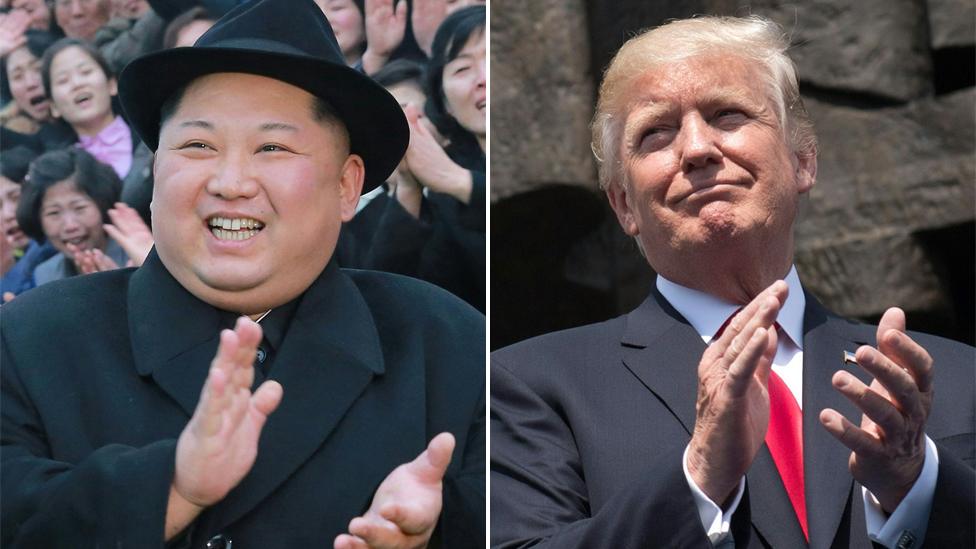North Korea-US talks: Who are North Korea's American detainees?
- Published
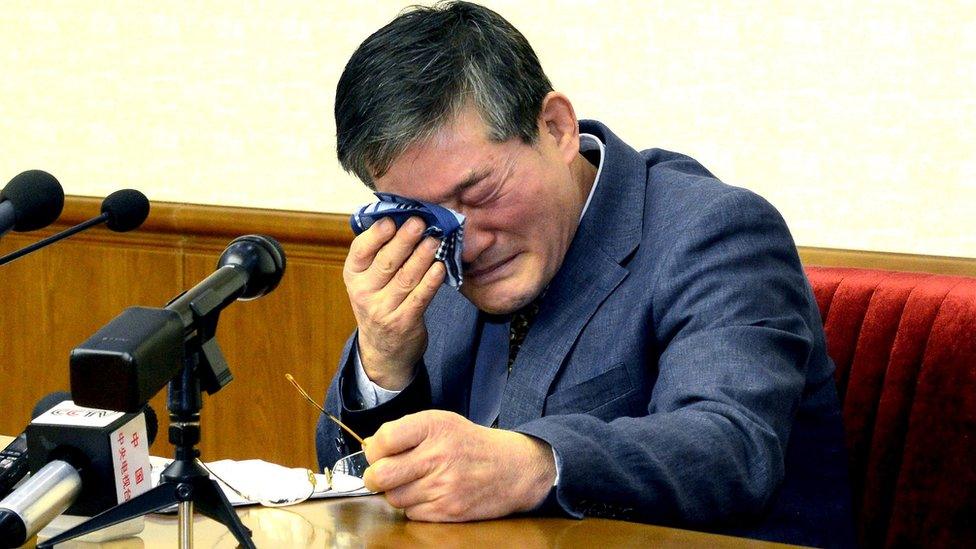
One of the three men who have been reportedly relocated, Kim Dong-chul, was sentenced to 10 years' hard labour after appearing before the media to confess in March 2016
Three Americans detained in North Korea are on their way home after being released in what is likely to be a goodwill gesture ahead of unprecedented talks between the leaders of US and North Korea.
US President Donald Trump tweeted: "I am pleased to inform you that Secretary of State Mike Pompeo is in the air and on his way back from North Korea with the 3 wonderful gentlemen that everyone is looking so forward to meeting."
Their release came after a meeting between Mr Pompeo and North Korean leader Kim Jong-un.
A White House statement said the three men appeared to be in good health and were able to walk on to their plane unassisted.
The only other US prisoner to be released by North Korea under Donald Trump's presidency was university student Otto Warmbier, who returned to the US in a coma and died days later.
Two of the newly released detainees were jailed in 2017, after Mr Trump became president. Here is what we know about the three men.
Kim Hak-song
Kim Hak-song worked at the Pyongyang University of Science and Technology (PUST) and was held on suspicion of "hostile acts" on 6 May 2017. He was reportedly detained while in Pyongyang Station.
The university, which mostly teaches the children of North Korea's elite, was founded in 2010 by a Korean-American Christian entrepreneur, with much of the costs funded by US and South Korea Christian charities.
Several foreign lecturers are thought to teach there.
Donald Trump and Kim Jong-un: From enemies to frenemies
Kim Hak-song had previously described himself as a Christian missionary who intended to start an experimental farm at PUST, Reuters news agency reported, citing an online post by Mr Kim.
He is, reports say, an ethnic Korean born just across the North Korean border in China who emigrated to the US in the 1990s. He is said to have gone on to study agriculture in Yanbian, a Chinese prefecture which borders North Korea, before moving to Pyongyang.
Kim Sang-duk/Tony Kim
Two weeks before Kim Hak-song was arrested, Kim Sang-duk - also known as Tony Kim - was detained on espionage charges.
He was trying to leave the country after spending a month working at PUST. South Korean media said he was 55 and had been involved in humanitarian work in the North.
"Some officials at PUST told me his arrest was not related to his work at PUST," the chancellor of the university, Chan-Mo Park, told Reuters news agency.
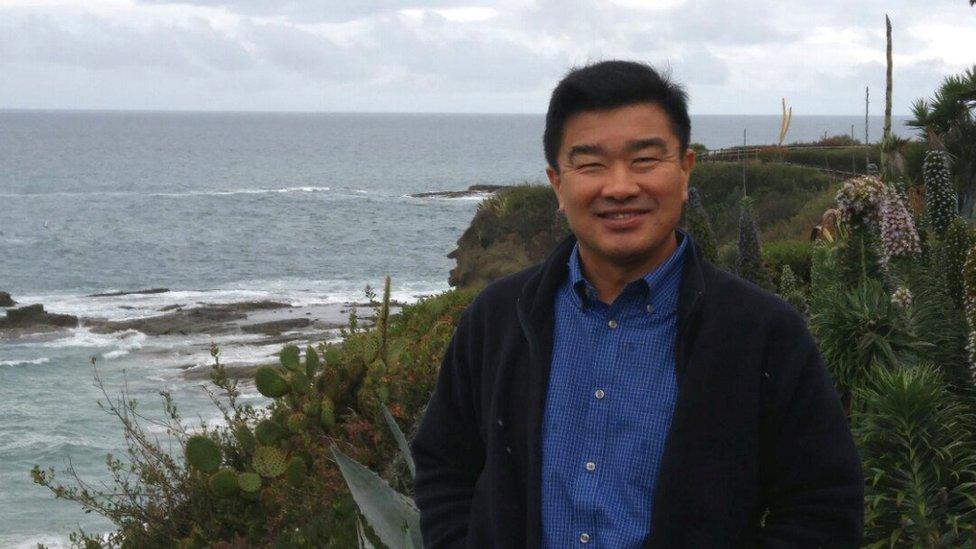
Tony Kim was detained on espionage charges
"He had been involved with some other activities outside PUST, such as helping an orphanage."
Mr Kim studied accounting at two American universities and had worked as an accountant in the US for more than a decade, his Facebook page says.
He had also taught in Yanbian.
Kim Dong-chul
A South Korea-born US citizen, Kim Dong-chul is a pastor in his early 60s.
He was detained in 2015 on spying charges and sentenced to 10 years' hard labour in 2016.
Before his trial, he was presented at a government-arranged press conference, where he apparently confessed to stealing military secrets in collusion with South Korea - a claim rejected by Seoul.
In an interview with CNN in January 2016, external, Mr Kim said he lived in Fairfax, Virginia.
He said he used to run a trading and hotel services company in Rason, a special economic zone near the border zone in north-east North Korea.
He told CNN he had left a wife and two daughters behind in China, but had had no contact with them since his detention.
- Published29 April 2016
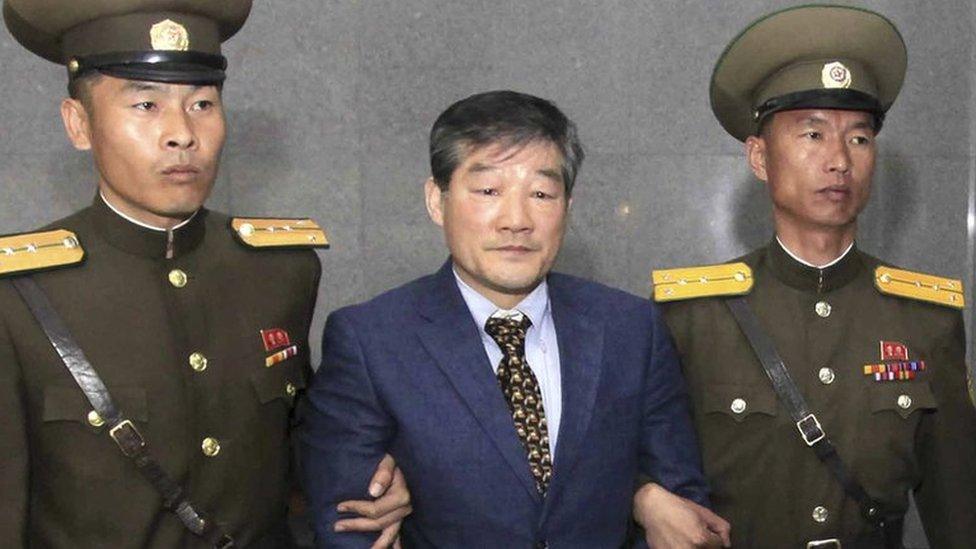
- Published25 March 2016
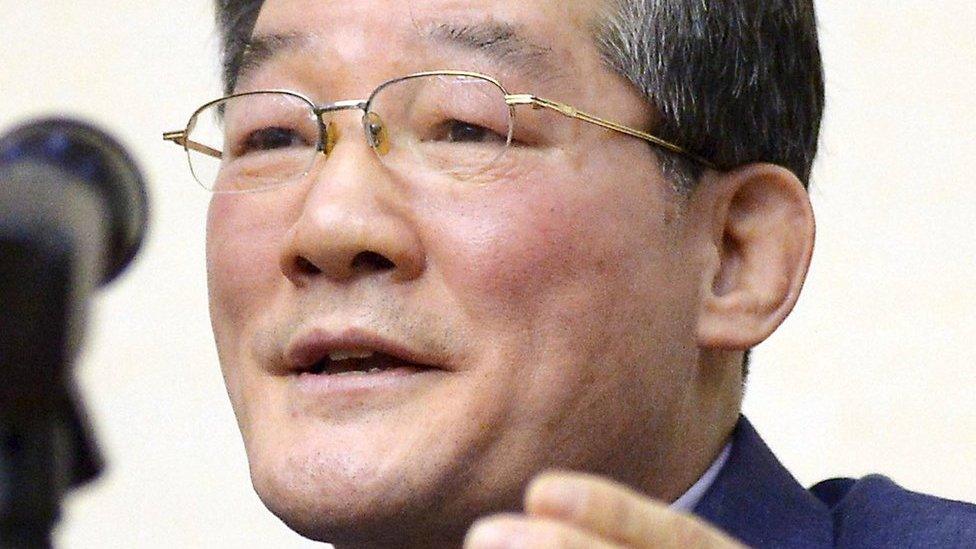
- Published28 March 2018
